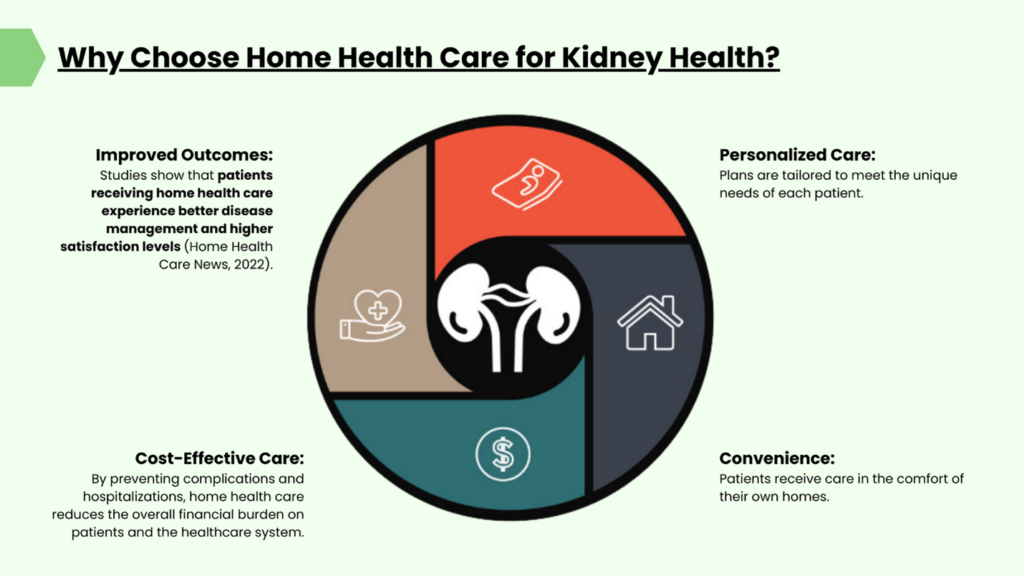The Critical Role of Home Health Care in Managing Kidney Health
Kidney health plays a vital role in overall well-being, yet many individuals face challenges in managing chronic kidney disease (CKD) or other kidney-related conditions, especially as they age. According to the National Kidney Foundation, 37 million adults in the United States have CKD, and most are unaware of their condition (National Kidney Foundation, 2023). With kidney disease often progressing silently until the later stages, proactive care and management are essential to improving outcomes and quality of life.
Kidney Disease: A Growing Concern
Kidney disease disproportionately affects older adults and individuals with coexisting conditions such as diabetes and hypertension. The Centers for Disease Control and Prevention (CDC) estimates that 1 in 3 adults in the U.S. is at risk for kidney disease, with aging being a significant factor (CDC, 2022). This underscores the importance of early detection, patient education, and continuous monitoring, all of which can be seamlessly integrated into a home health care plan.
How Home Health Care Supports Patients with Kidney Disease
Home health care offers a comprehensive, patient-centered approach to managing kidney disease. Here’s how our team supports patients and their families:
1. Chronic Disease Management
Our skilled clinicians collaborate with nephrologists and primary care providers to ensure seamless communication and adherence to care plans. This includes monitoring vital signs, ensuring medication compliance, and offering dietary counseling tailored to kidney health.
2. Preventing Hospitalizations
Hospitalizations are common for patients with advanced kidney disease, often due to complications such as fluid imbalances or infections. Through timely interventions and continuous monitoring, our team works to reduce hospital readmissions by up to 35% (Agency for Healthcare Research and Quality, 2021).
3. Dialysis Support
For patients on dialysis, home health care can provide education on managing dialysis access sites, recognizing early signs of infection, and promoting adherence to dialysis schedules. Our goal is to empower patients to stay safely at home while maintaining their treatment plans.
4. Nutrition Counseling
Nutrition plays a pivotal role in slowing the progression of kidney disease. Our dieticians and nursing staff work closely with patients to develop renal-friendly meal plans, reducing sodium, potassium, and phosphorus intake while supporting overall health.
5. Education and Emotional Support
Managing kidney disease can be overwhelming. Our compassionate team educates patients and caregivers about the condition, treatment options, and lifestyle adjustments. We also offer emotional support to reduce stress and improve mental well-being.

Next Steps
If you or a loved one is living with kidney disease, or if you are medical professional looking for trusted care for your patients, we are here to help. Contact us today to learn how our home health care team can support kidney health through comprehensive, compassionate care.
References
Agency for Healthcare Research and Quality. (2021). Reducing hospital readmissions through patient-centered care. Retrieved from https://www.ahrq.gov
Centers for Disease Control and Prevention. (2022). Chronic kidney disease initiative: At-a-glance. Retrieved from https://www.cdc.gov
National Kidney Foundation. (2023). Facts about chronic kidney disease. Retrieved from https://www.kidney.org
Home Health Care News. (2022). The impact of home health care on chronic disease management. Retrieved from https://www.homehealthcarenews.com



